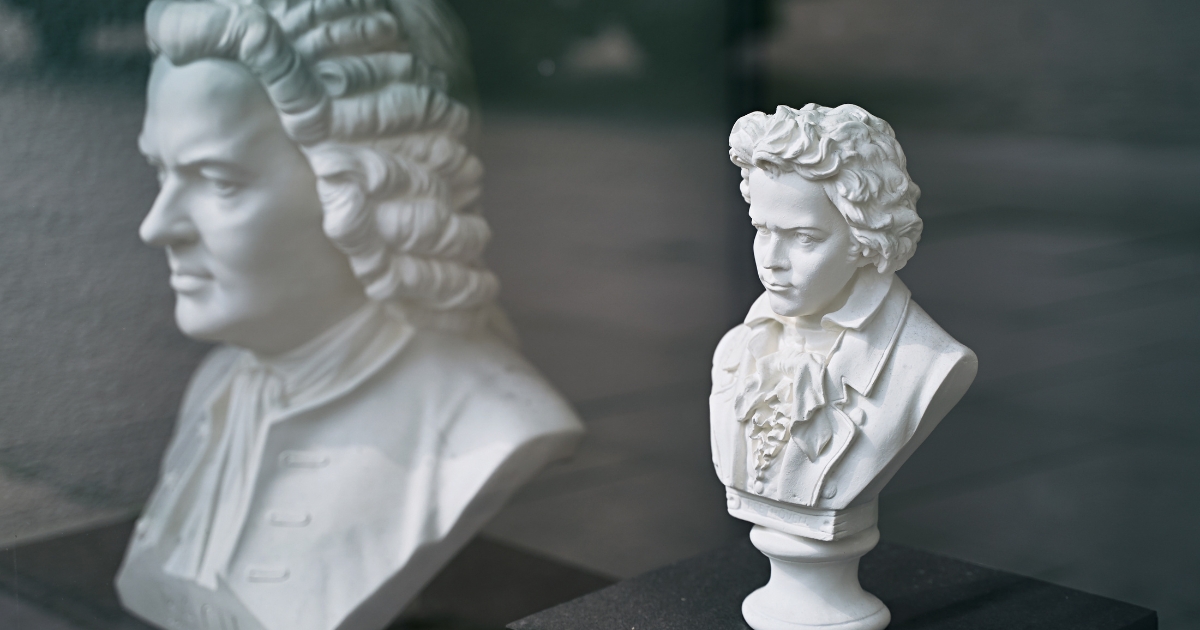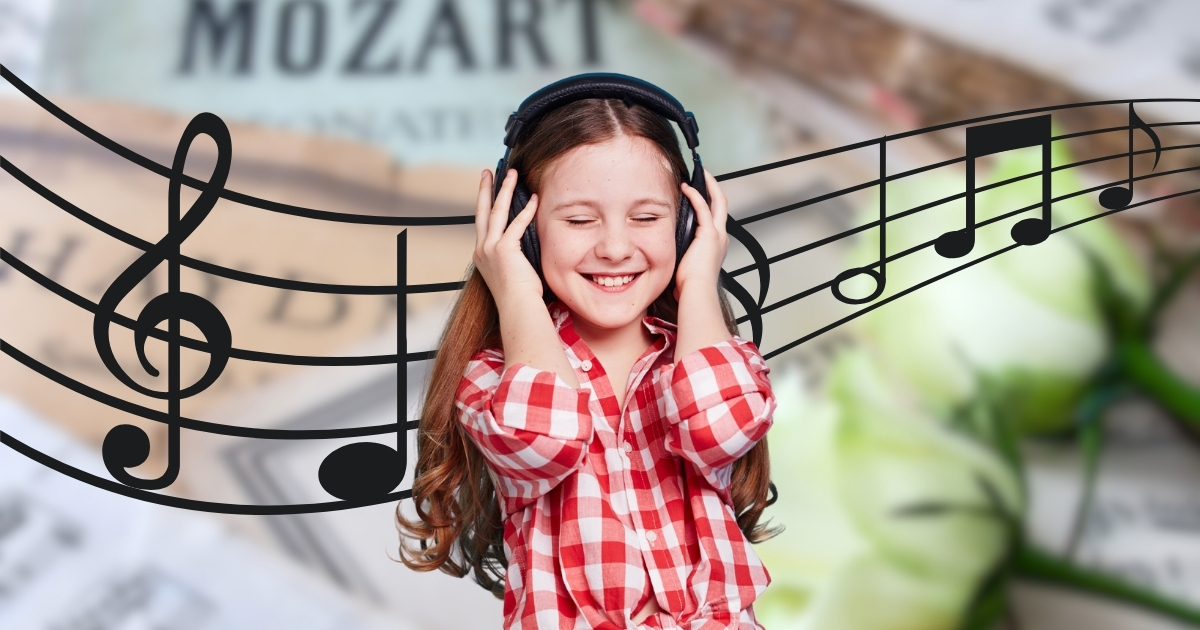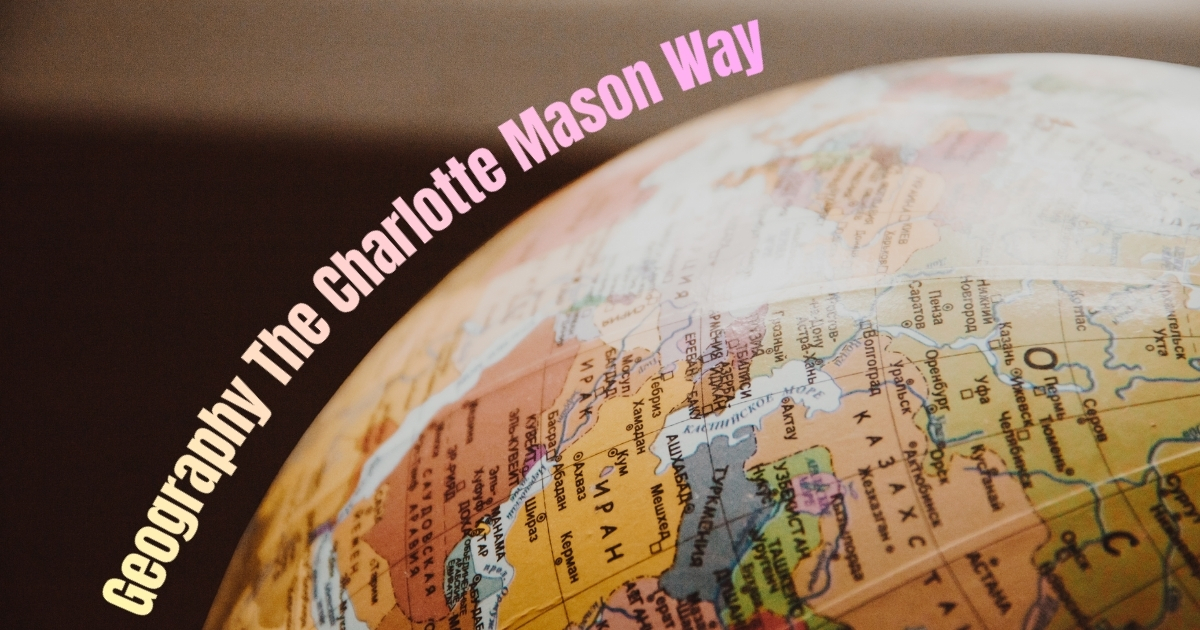Imagine filling your homeschool classroom with the sounds of Beethoven’s “Fur Elise” or Mozart’s “Eine kleine Nachtmusik.” Classical music isn’t just about enjoying beautiful melodies; it’s also a gateway to understanding history, culture, and even mathematical concepts. If you’re a homeschooling parent, incorporating classical music composers into your curriculum can make learning about history and the arts an enriching experience for your children. In this blog post, we will take a deep dive into teaching music history for kids, focusing on classical composers and how you can seamlessly integrate this subject into your homeschool music curriculum education.
The Importance Of Classical Music In Homeschooling
Teaching homeschool can be both rewarding and challenging. One area that often gets overlooked but can add significant value is the subject of Art and Music, specifically classical music. Introducing your kids to classical music provides them with a well-rounded education and helps develop their cognitive abilities. Studies show that children who listen to classical music tend to have better memory, improved concentration, and even increased emotional intelligence. Integrating classical composers into your homeschool music curriculum education offers more than just a break from traditional subjects; it provides a holistic approach to learning.
Incorporating classical music into your educational plans can also make history lessons more engaging. Imagine teaching about the Baroque period while playing Bach’s “Brandenburg Concertos” in the background. It adds an auditory dimension to your history lessons, making the events and figures you’re discussing come alive. Music has the power to evoke emotions and set the ambiance, making it easier for kids to remember key historical facts. This makes teaching homeschool both effective and enjoyable for you and your kids. Another benefit of including classical music is the opportunity to explore various cultures and traditions. Composers like Tchaikovsky, Debussy, and Chopin each bring a unique cultural flavor that enriches your child’s understanding of the world. This global perspective is invaluable in today’s interconnected world. By studying classical music, children can appreciate the diversity and complexity of different musical traditions and develop a greater understanding of global cultures.
Teaching The Greats
When it comes to teaching music history to kids, it’s essential to start with the greats. Classical composers like Bach, Mozart, and Beethoven have significantly influenced the world of music. Their works are not only technically impressive but also deeply emotional and spiritually uplifting. Introducing your kids to these composers can open up a world of fascination and curiosity about the past.
Johann Sebastian Bach is a fantastic starting point. As a Baroque composer, Bach’s music is intricate and complex yet immensely satisfying. His compositions, like the “Well-Tempered Clavier” and “Mass in B Minor,” are not just pieces of music but masterpieces of mathematical precision and emotional depth. Teaching your children about Bach can help them understand the Baroque period’s intricacies and how music can be both structured and expressive. You can even incorporate some basic music theory lessons to show how Bach’s use of counterpoint works. This adds another layer to your homeschool music curriculum education, making it both challenging and rewarding.
Wolfgang Amadeus Mozart is another composer who should be a staple in your homeschool music curriculum. Mozart’s life story is as compelling as his music. A child prodigy who composed his first piece at five, Mozart’s life is an inspiring tale of genius and creativity. His compositions like “The Magic Flute” and “Requiem” are perfect examples of the Classical period’s elegance and balance. Teaching your children about Mozart can also incorporate lessons in geography and history, as Mozart traveled extensively throughout Europe, influencing and being influenced by various cultures. This multi-disciplinary approach enriches your homeschooling experience, making learning more interconnected and meaningful.

Ludwig van Beethoven bridges the Classical and Romantic periods, making him an essential figure in music history for kids. Beethoven’s music is filled with emotional depth, reflecting his personal struggles, including his battle with deafness. Works like the “Fifth Symphony” and “Moonlight Sonata” are not just pieces of music but emotional journeys. Introducing Beethoven into your homeschool music curriculum education can teach children about resilience and the power of creativity in overcoming adversity. His life story serves as an inspirational lesson, showing that challenges can be turned into opportunities for artistic expression.
Practical Tips For Integrating Classical Music
Now that you’re sold on the idea of adding classical composers to your homeschool music curriculum, the next step is figuring out how to do it. It might seem overwhelming at first, but integrating classical music into your daily lessons can be simpler than you think. All it takes is a bit of planning and creativity to make the subject come alive for your children. Start by setting aside time each week dedicated to Art and Music. Even 30 minutes a day can make a difference. Use this time to introduce a new composer, play some of their music, and discuss the historical context in which they composed. You can use resources like YouTube for musical performances or websites that offer free streaming of classical music. You can also find documentaries or biographical films about these composers to add a visual element to your lessons. This multi-sensory approach enhances teaching homeschool, making it more dynamic and engaging for your kids.
Another practical tip is to create themed units. For example, one month should be dedicated to the Baroque period and focus on composers like Bach and Handel. The next month, you can move on to the Classical period with Mozart and Haydn. This structure gives your children a sense of progression and helps them understand the evolution of music over time. You can even create projects around these themes, such as composing a short piece inspired by the style of the period you’re studying. This hands-on approach makes the lessons more interactive and memorable, enhancing the overall homeschool music curriculum education. Finally, involve your children in the learning process. Ask them which composers they are interested in and incorporate their preferences into your lessons. Encourage them to perform pieces by these composers if they play an instrument or even try their hand at composing. Making your children active participants in their education fosters a love for learning and helps them develop a deeper connection to the subject matter. This approach aligns well with the principles of teaching homeschool, where personalized education is often the key to success.
Enriching Your Homeschool Curriculum
Classical composers offer a wealth of knowledge and inspiration that can enrich your homeschooling curriculum. From developing cognitive skills to understanding historical contexts, the benefits of introducing classical music into your homeschool are manifold. By focusing on the greats like Bach, Mozart, and Beethoven, you provide your children with a well-rounded education that goes beyond traditional subjects. Practical tips like setting aside dedicated time, creating themed units, and involving your children in the learning process can make the integration of classical music both manageable and enjoyable. Incorporating classical music into your homeschool curriculum is not just about teaching music history to kids; it’s about providing a holistic education that nurtures their intellectual and emotional development. By doing so, you prepare them for a future where they can appreciate the arts, understand history, and develop critical thinking skills. This approach aligns perfectly with the principles of homeschool music curriculum education, making learning a rich and fulfilling experience for both you and your children.



